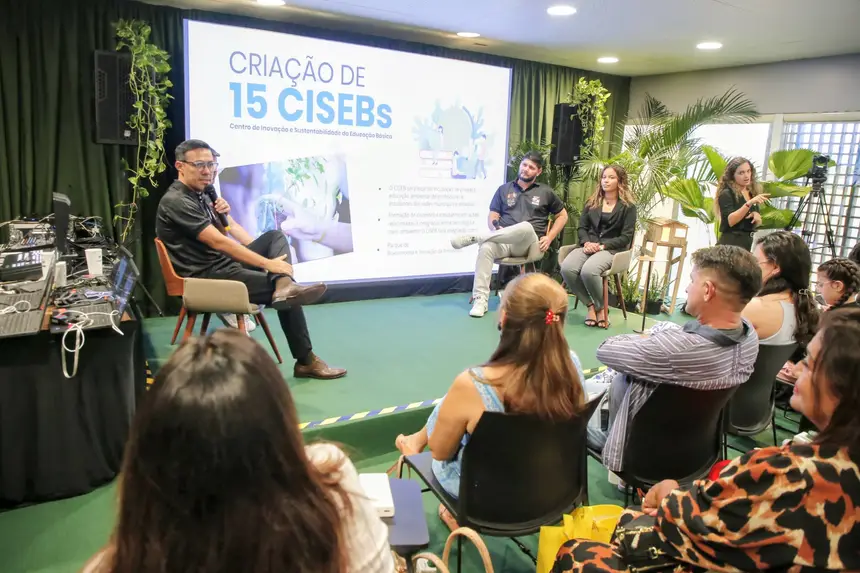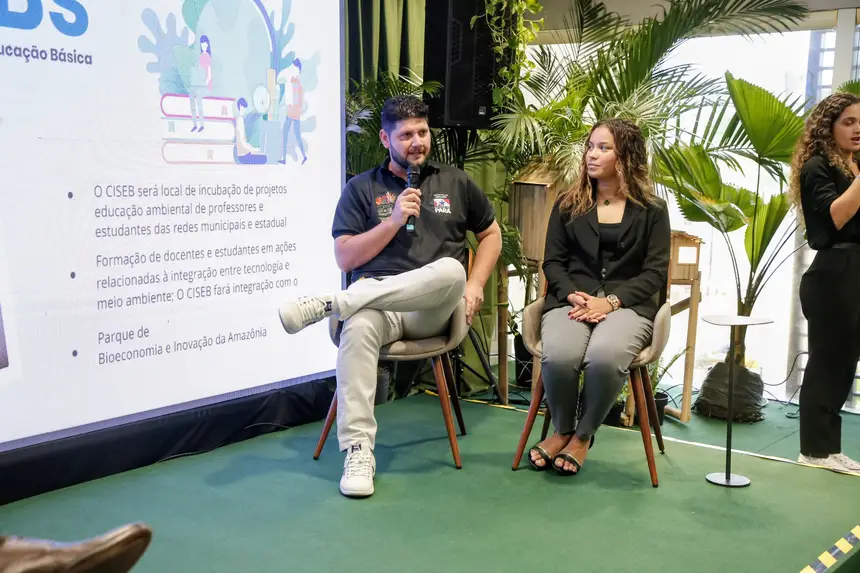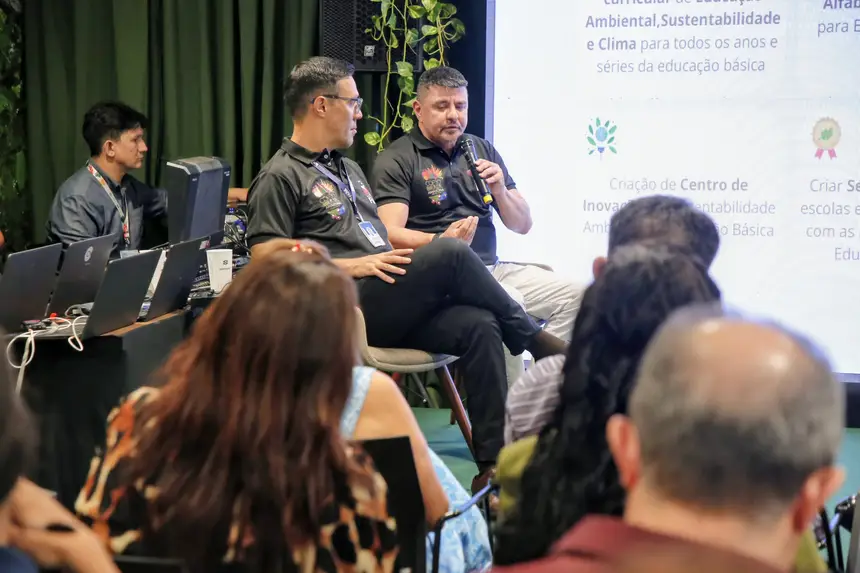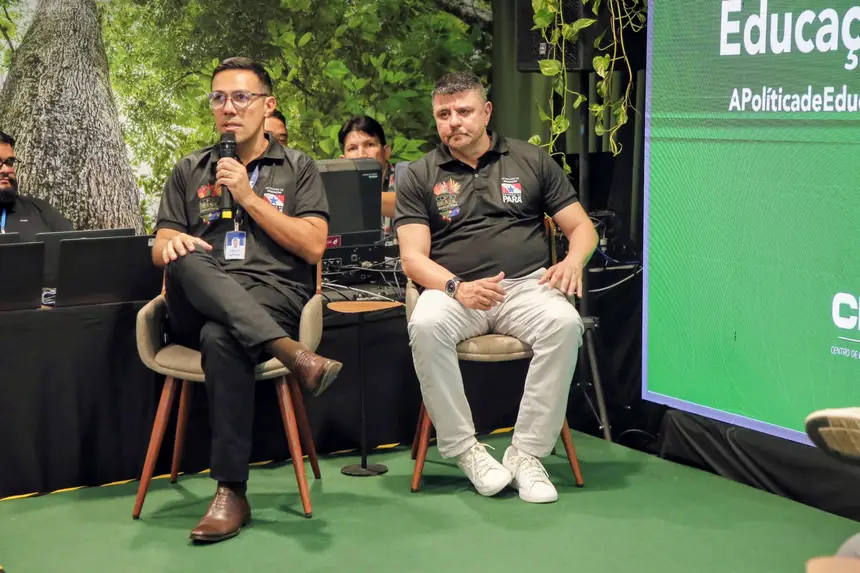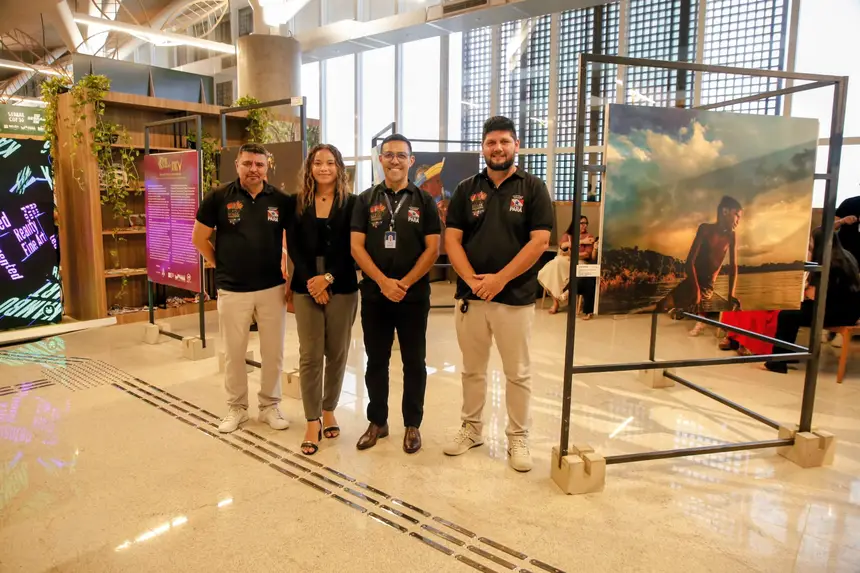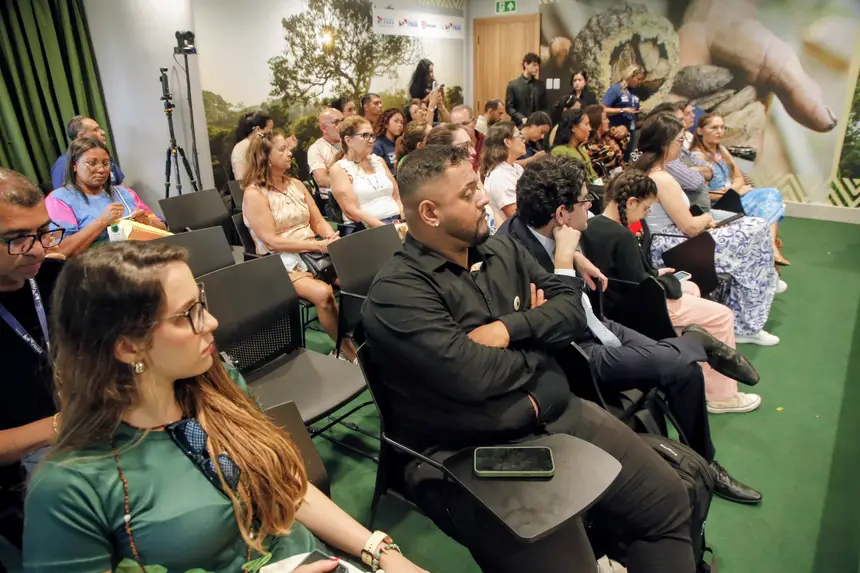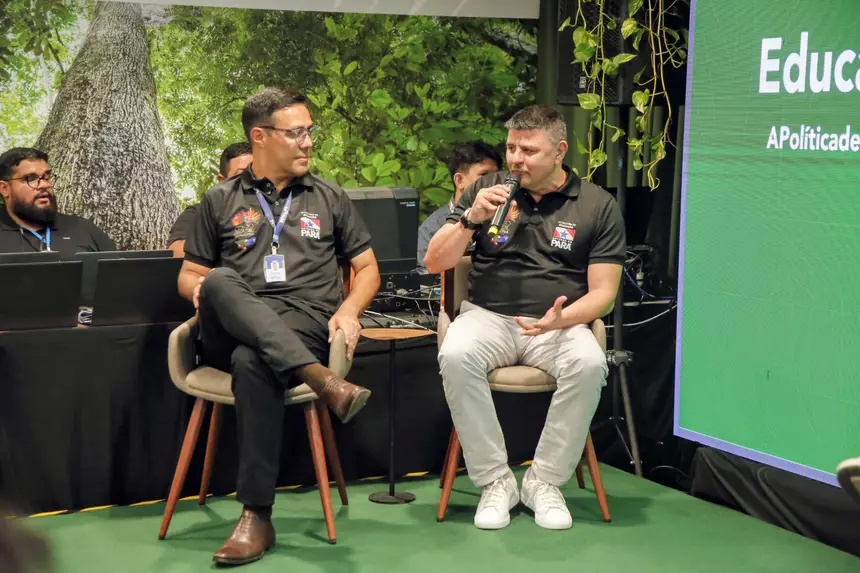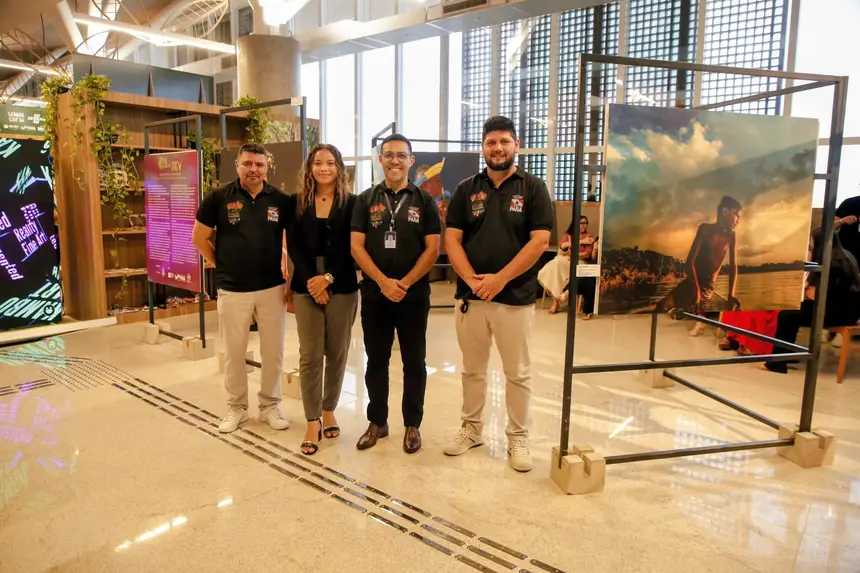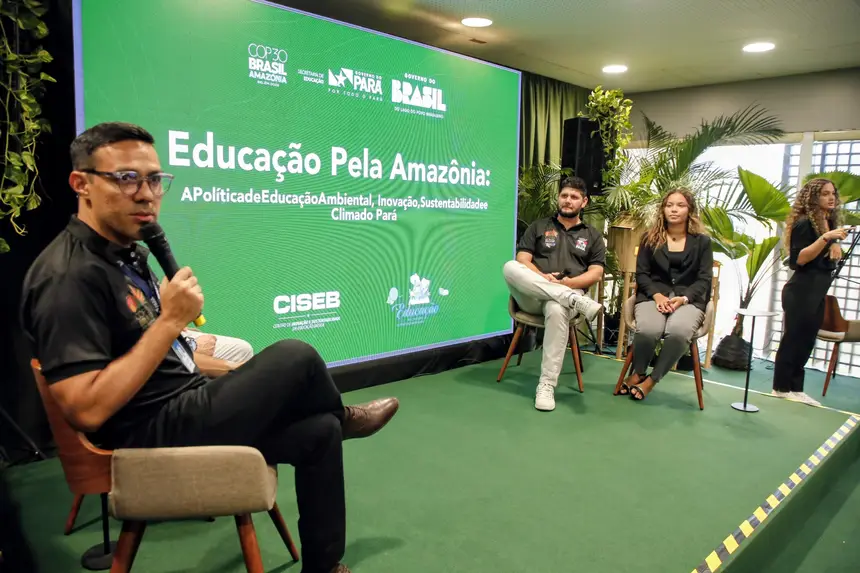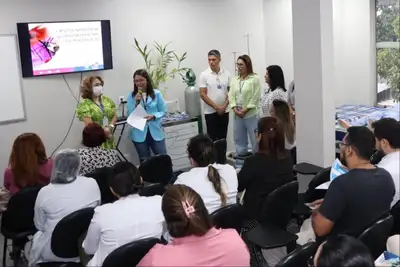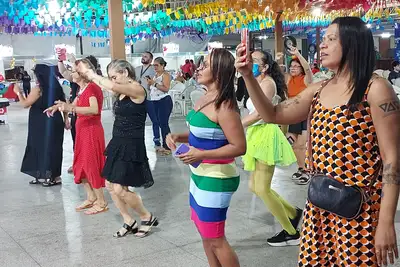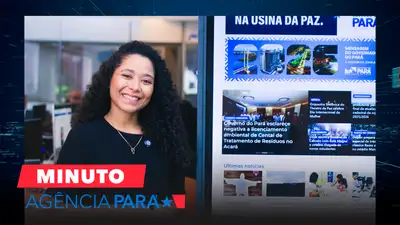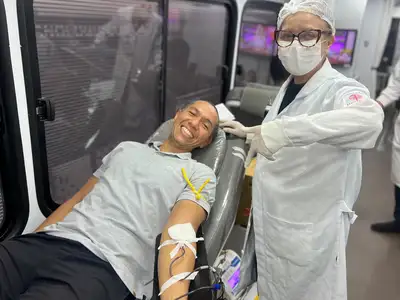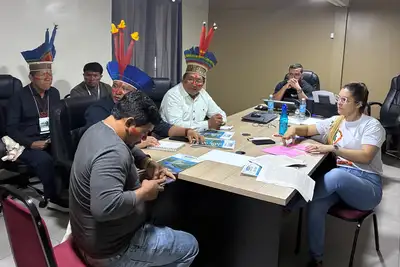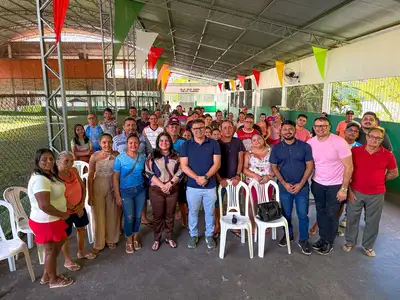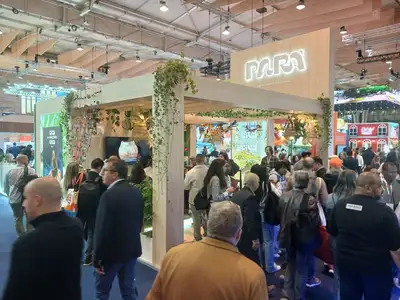Education from Pará stands out at COP 30 with innovative Environmental Education and Sustainability policy
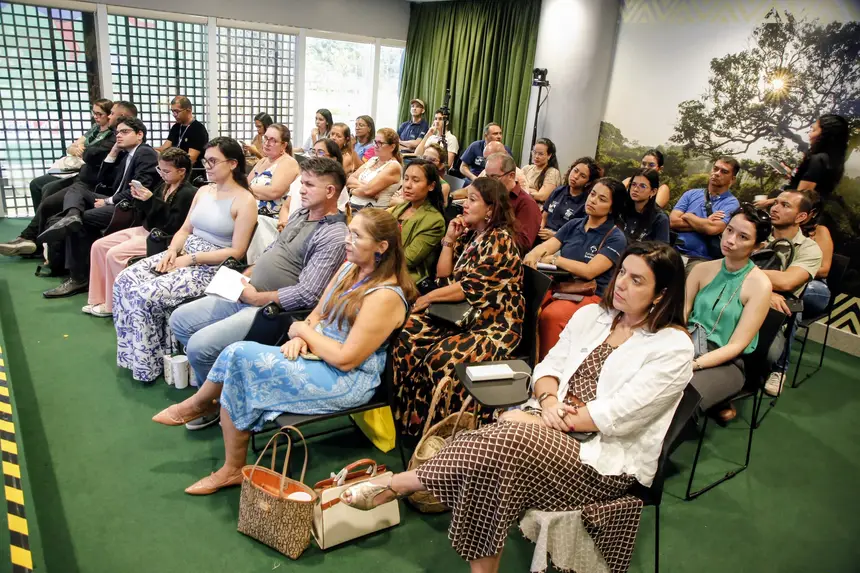
The State Department of Education of Pará (Seduc) was present at the United Nations Conference on Climate Change (COP30) with the panel "Education for the Amazon: the Environmental Education, Innovation, Sustainability, and Climate Policy of Pará," held at the Greenzone, Pará Pavilion, in the City Park, on the afternoon of this Monday, the 10th.
The activity was promoted by the Coordination of Environmental Education and the Management of the Center for Innovation and Sustainability in Basic Education (Ciseb), with the aim of presenting the pioneering actions of the State in integrating education, the environment, and technological innovation.
Participating in the panel were the Deputy Secretary of Collaboration Regime (Sarc), Diego Maia, the Coordinator of Environmental Education, Mauro Tavares, the Director of Innovation at Seduc, Rafael Herdy, and student Tamires Eleres.
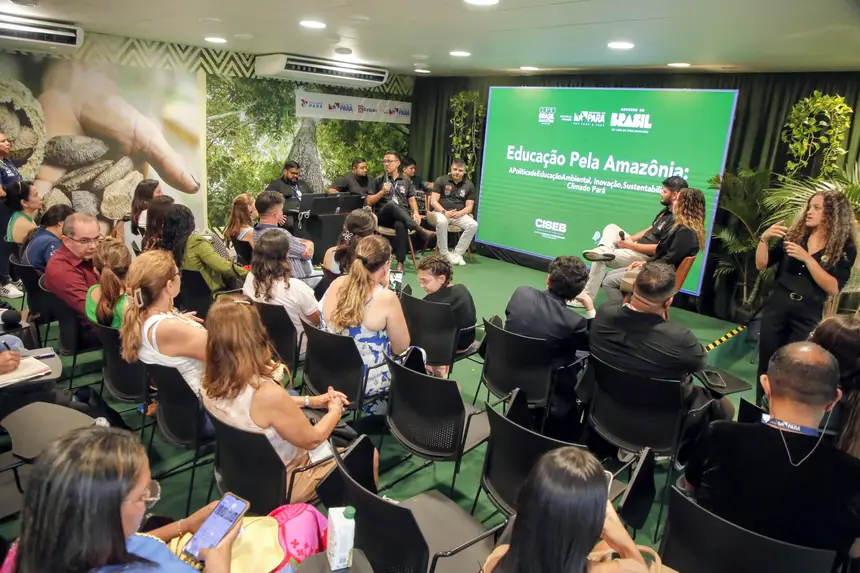
During the meeting, Deputy Secretary Diego Maia highlighted Pará's leadership as the only Brazilian state to institutionalize environmental education as a mandatory curricular component, integrating the theme into the teaching-learning process.
"Pará is today the only state in Brazil that has implemented environmental education not as a transversal theme, but as part of the pedagogical process. This is within our state curriculum, with original material and its own assessment. COP30 is an opportunity to showcase our advances, with a policy that unites education, innovation, and climate."
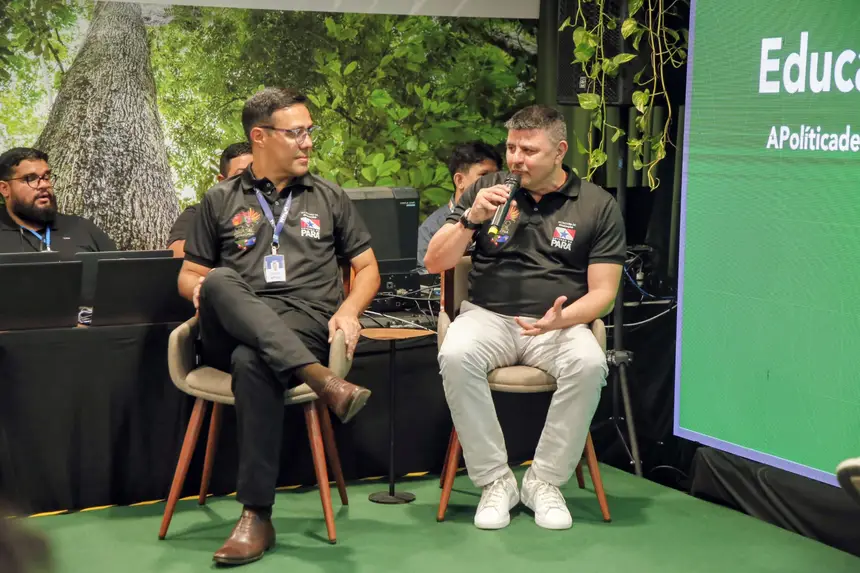
The Coordinator of Environmental Education at Seduc, Mauro Tavares, emphasized the importance of public policy for the formation of new generations committed to the environment.
"It is an opportunity for dialogue with society about the importance of implementing the environmental education component in schools. Today, there is a structured educational pathway, from the early years to high school, that strengthens the formation of ecological citizens. Our goal is to contribute to a better future, where sustainability is a daily value," he highlighted.
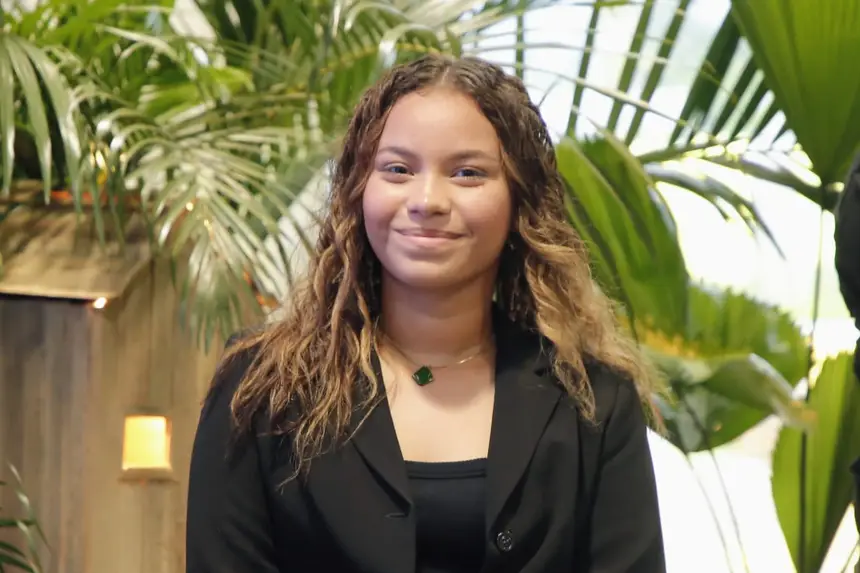
Representing the public school students, Tamires Eleres, a 3rd-year high school student at the Pedro Amazonas Pedroso State School, shared her experience with the Environmental Education subject and its personal impact.
"Environmental education changed my way of seeing the world. It was from it that I developed scientific projects, wrote my first book on deforestation, and broadened my critical view of society. It is essential for transforming attitudes and forming conscious citizens, from early childhood education to high school," reported the student.
The Director of Innovation at Seduc, Rafael Herdy, highlighted the role of the Center for Innovation and Sustainability in Basic Education (Ciseb) in promoting active learning connected to the Amazonian challenges.
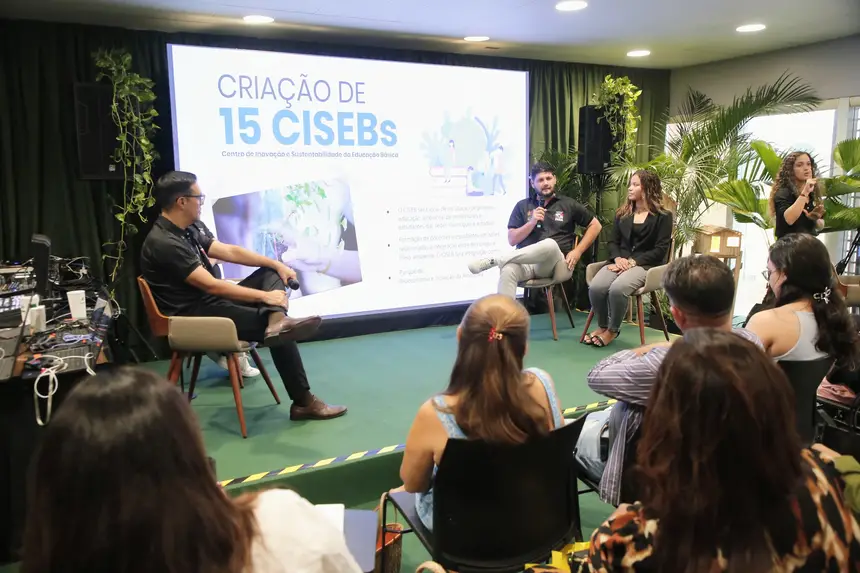
"Ciseb was born as a concrete response to the challenge of making public education more innovative, connected, and sustainable. It combines technology, creativity, and ongoing training, making teachers and students protagonists in creating solutions for climate and environmental challenges. Our commitment is to make the Amazon a territory where a new way of educating is experimented with, more creative, collaborative, and connected to the planet," he stated.
Environmental Education
The State Policy on Environmental Education, Innovation, Sustainability, and Climate, established in 2024, consists of six pillars, including the creation of the Environmental Education curricular component and the consolidation of Cisebs as reference centers for innovative practices. The initiative reaffirms the commitment of the Government of Pará to build a transformative, inclusive public education aligned with the Sustainable Development Goals (SDGs).



